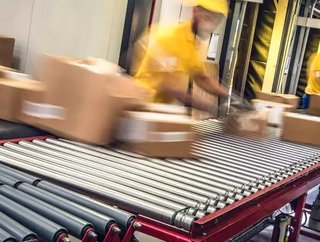Black Friday could cost UK retailers £203m in returns

Black Friday, now an annual celebration in the UK, is expected to cause Britons to spend at least £3bn this year. According to data from Sorted, however, warns that the day could also cost retailers £203m in returns caused by failed deliveries.
Original data from the delivery experience company, as outlined in Coming Together: The Blue Print For Collaborative Commerce Report which tracked the buying habits of more than 2,000 shoppers, predicts Black Friday alone will see £1.01bn worth of online deliveries fail.
This can represent a critical issue for retailers when items that are sent back become stuck in a ‘returns loop’ in the retailer’s system. It means that products become unavailable to buy a the very moment a retailer wants to sell in the Christmas trading period, and will often end up back on the shelf in January, further discounted and reducing already tight margins.
- RELATED STORIES:
- UK retail sales are suffering the largest fall since recession
- We’re entering the ‘uptime era’; here’s how manufacturers can prepare
- JML to release three 'disruptive' new products
David Grimes, founder and CEO at Sorted, commented: “Consumers already expect immediacy of delivery at every stage of their buying journey – indeed, our recent research showed two fifths of UK shoppers won’t wait more than 24 hours for a delivery, suggesting that even ‘next day’ fulfilment options no longer adds value to online shoppers.
“And, with the frenzied buying behaviours associated with flash promotions, such as Black Friday, this just compounds the sense of urgency around speed of delivery. Consumers already want ultra-fast fulfilment and this is just exacerbated on Black Friday – with failed Black Friday deliveries which don’t meet shoppers’ expectations around speed costing UK retailers £203m in returns.
“In addition to offering additional delivery options to meet these demands, retailers need to be confident they can deliver on these promises to uphold the delivery experience. Practically, retailers should consider third party logistics partners who are geared to perform at speed in a specific geographic area, as well as carriers who specialise at delivering specific types of items, generally depending on their size and weight, are more likely to be meet deadlines and operate more cost effectively,” he concluded.
- An Executive Outlook in the Face of Economic Uncertainty
- UK Car Manufacturing Performance Falls to Lowest Since 1956Procurement & Supply Chain
- Made Smarter, North West pilot gains government backing (UK)Smart Manufacturing
- UK Manufacturing: the impact of a third national lockdownProcurement & Supply Chain






